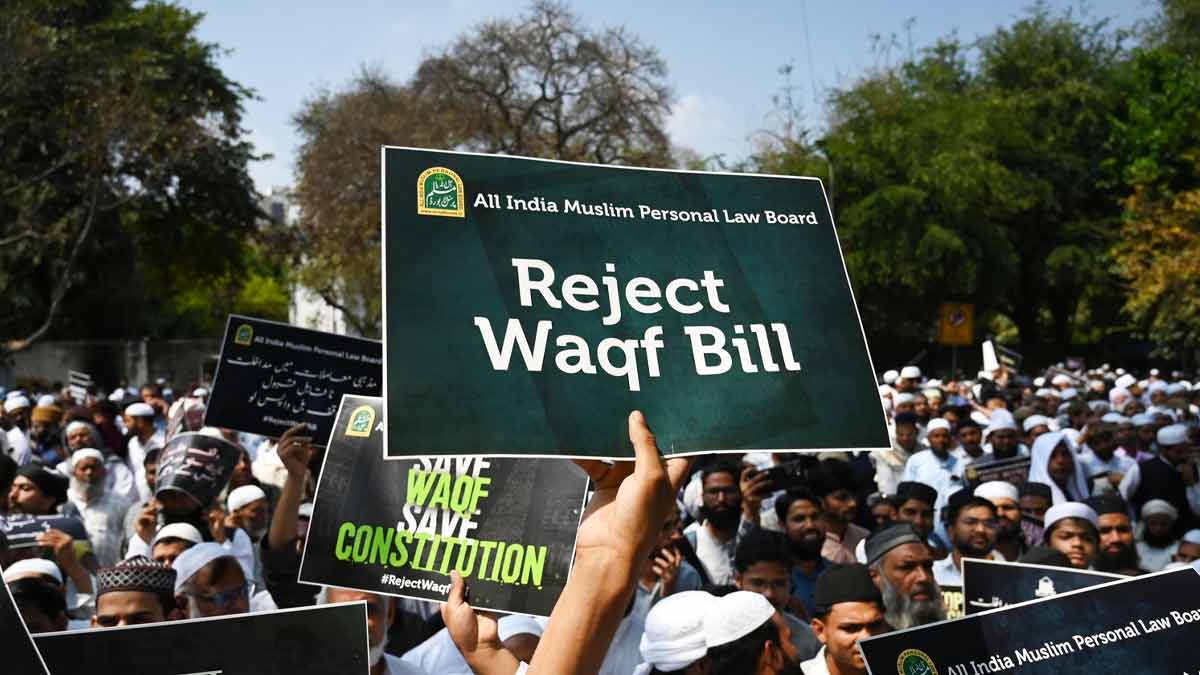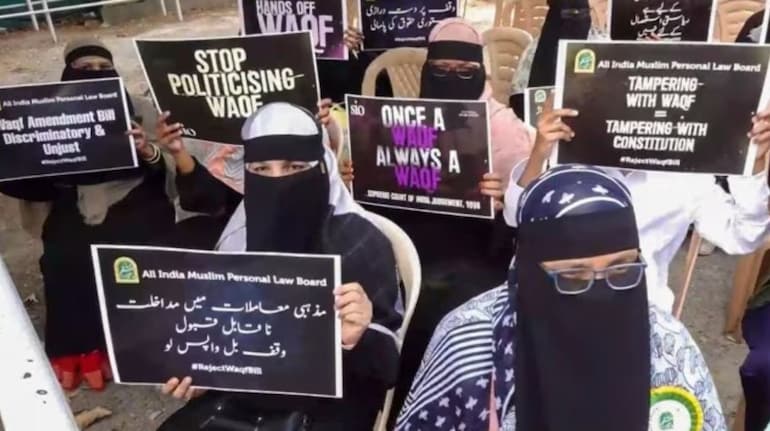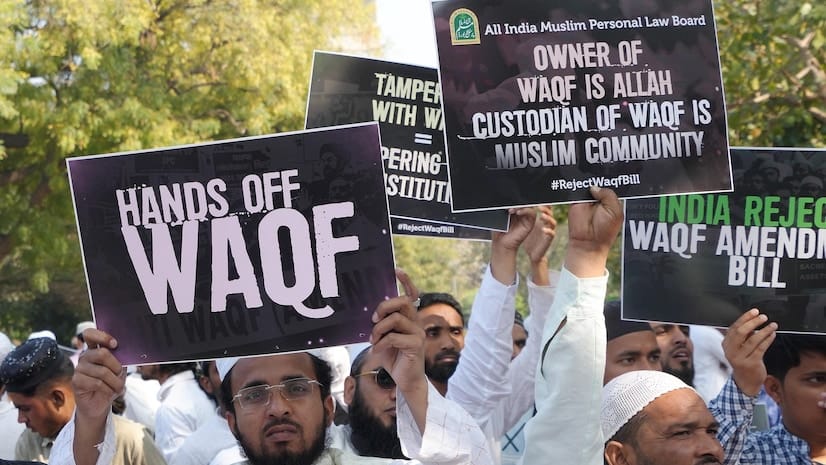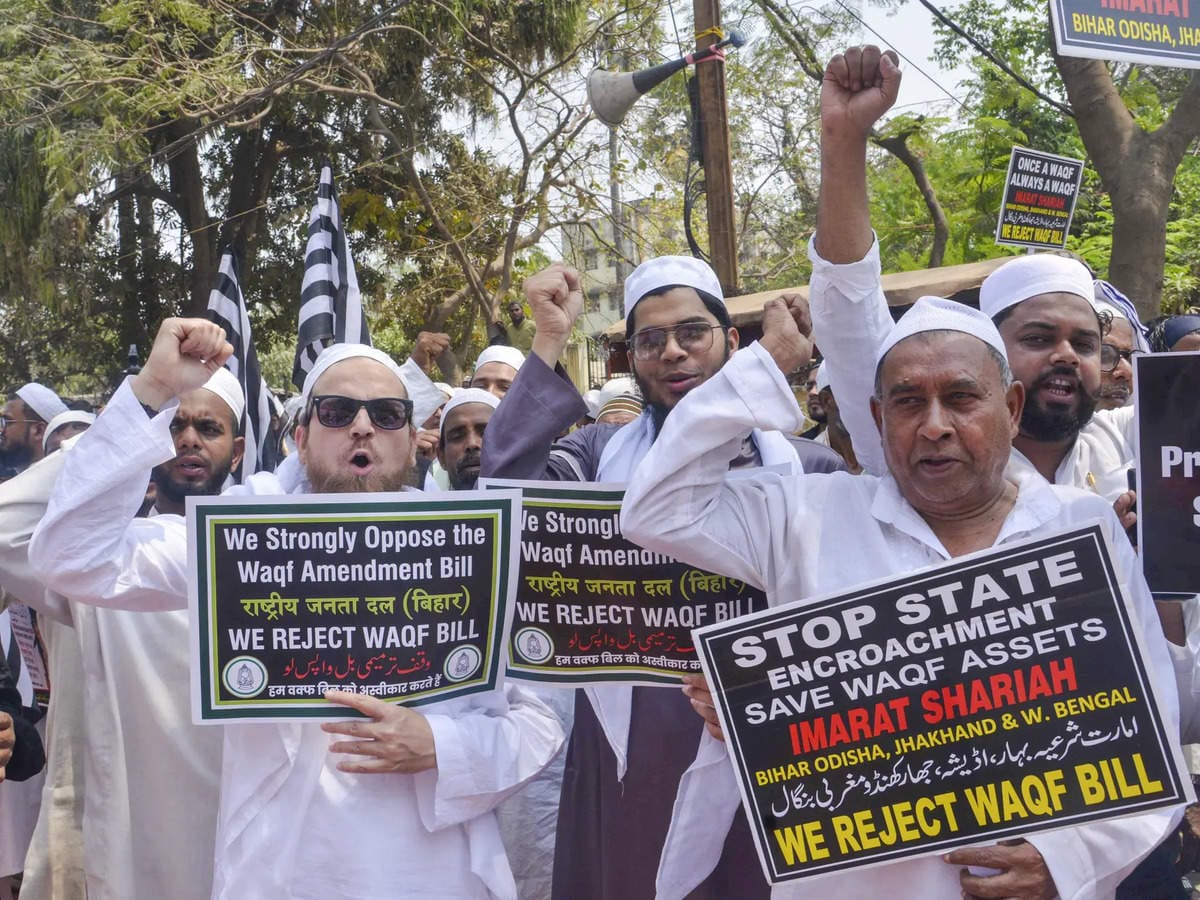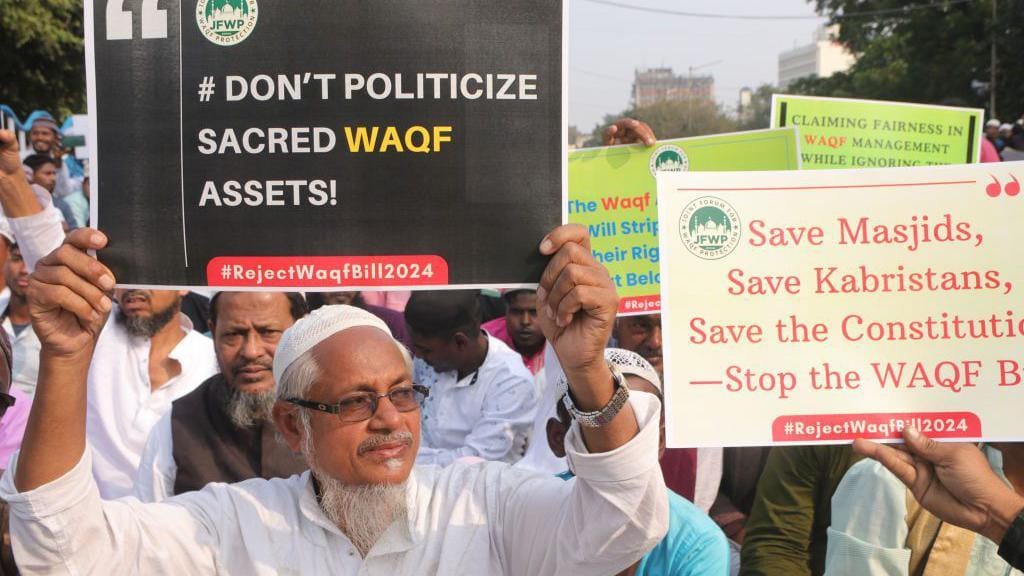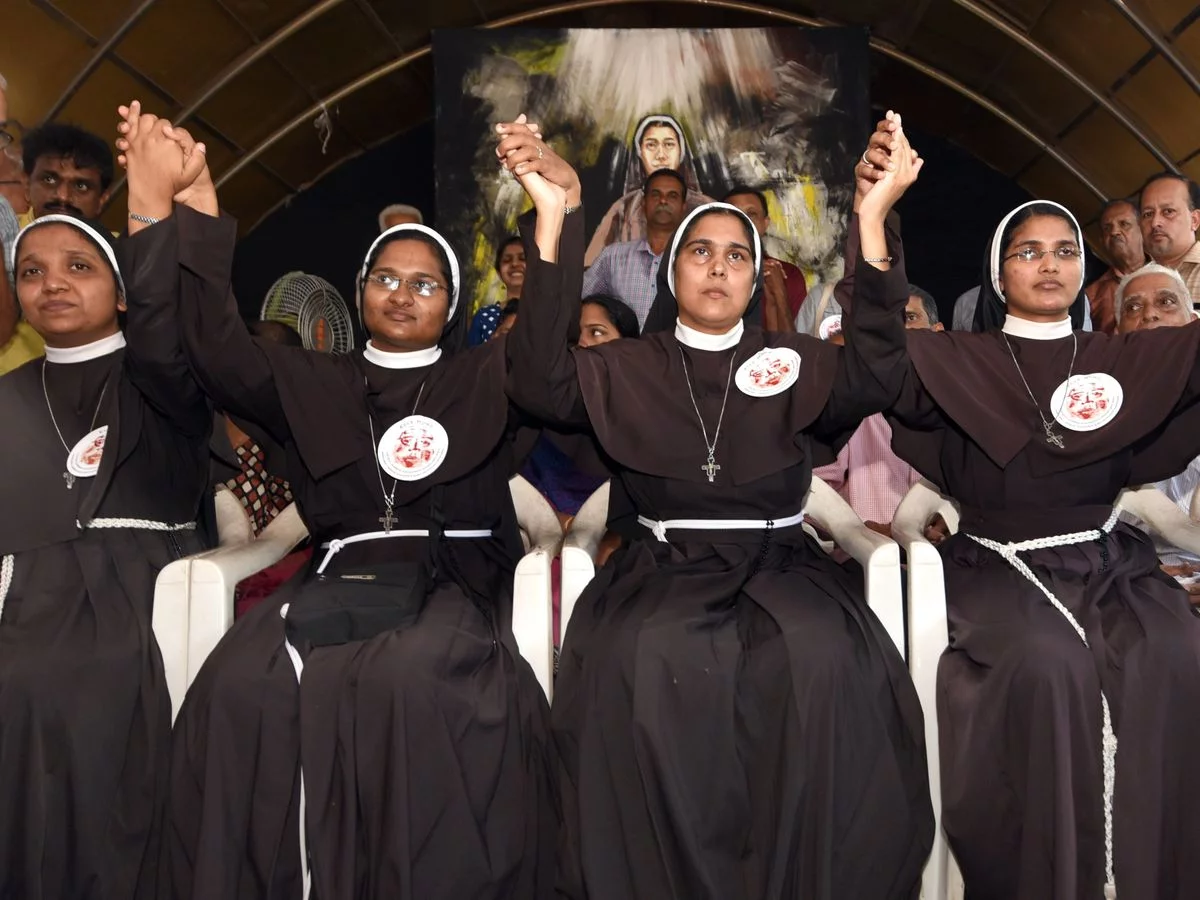The BJP’s approach to religious minorities, especially those who subscribe to the Islamic faith, has evolved from subtle actions to megaphone diplomacy — proving that in the Indian polity, subtlety has been retired with more fanfare than their election promises. The Waqf Amendment Bill marks a significant milestone in the BJP’s labyrinthine route to total marginalisation of minority faiths and the undermining of the constitutionally ‘secular’ character of any democracy, threatening to destroy the control and character of Waqf properties, Islam-based religious and charitable endowments. It functions on a multitude of conceptual planes: as a cultural hegemony assertion, as a judicial reorientation, and as a political weapon of control over minority religious infrastructure.
These Waqf properties include several thousands of mosques, madrasas, shrines, orphanages, and graveyards that have been the intergenerational inheritances of Muslims, who manage and benefit from these institutions. According to the Indian government, there exist at least 872,351 Waqf properties in India, with an estimated total value of 1.2 trillion rupees (around $14.22 billion).
Systemic barriers to educational and employment opportunities have shackled India’s Muslim population into cycles of economic hardship, cementing their position among the nation’s most financially disadvantaged communities. To combat these inequities, 32 state Waqf boards run more than 2,000 educational institutions and hundreds of health clinics that work for the benefit of the underprivileged Muslim populace. However, the Waqf amendment casts a murky shadow on the future of these institutions.
Governance changes: from community control to state intervention
Historically, the Waqf properties have been managed by their direct stakeholders, members of the Muslim communities who traditionally have the best interests of their segment at heart. This policy of just having members of the faith serve on their boards corroborates with the policies of boards which manage Hindu, Sikh, and Jain endowments, making the inclusion of non-Muslim members on Waqf boards a rather contentious and worrying feature of this bill. This unprecedented move has sparked fears of a reconfiguration of the Waqf institutions’ directions away from the common Muslim good, potentially leading to hostile takeovers or institutional destabilisations.
The Muslim populace is economically and socially vulnerable—with only 5.9% representation in government jobs despite comprising 14.2% of the population—and even slight changes that align with the BJP’s agenda for minorities can prove to be catastrophic for Muslim livelihoods. These changes are, however, more than likely to occur as the new bill involves greater government involvement in property rights and dispute resolution.
The Muslim populace is economically and socially vulnerable—with only 5.9% representation in government jobs despite comprising 14.2% of the population—and even slight changes that align with the BJP’s agenda for minorities can prove to be catastrophic for Muslim livelihoods.
This item has been on the BJP agenda for a considerable while, as conveyed by Amit Shah’s statement on the 2013 amendment of the Waqf Act of 1995: ‘From 1913 to 2013, the Waqf Board had a total of 18 lakh acres of land. Between 2013 and 2025, after the Congress-led UPA amended the Waqf Act in 2013, 21 lakh acres were added to it. And now they are saying that there has been no misuse.’
These attempts geared towards encroachment of Waqf land are no new trend. On this topic, Shabbir Ansari of the All India Muslim OBC Sanghatana said, ‘There is no doubt there is encroachment and mismanagement of Waqf land in Maharashtra. It is also true that most of it took place during Congress rule and by their leaders, but what the BJP government has done today will result in divesting the Muslim community of their rightful land parcels. It is an attempt to hand over land to industrialists in the guise of welfare of the pasmanda Muslims. The ATAK Shaikh Commission appointed to inquire into the status of Waqf properties in 2011 had concluded that most of the Waqf land grab by political leaders was done in connivance with government officers such as the collectors. Now the BJP government is handing over all power to manage these properties to the same breed of officers.’
Technological surveillance and the ‘state of exception’: stare control over Waqf properties
The BJP government now aims to increase state control over Waqf properties through audits and financial management, utilising Geographic Information System (GIS) mapping in Maharashtra to survey and manage their land parcels. The introduction of this application signals a broader technological approach to property management that could potentially alter ownership claims and historical rights. While presented as an initiative in line with the so-called modernisation effort to improve transparency, this may represent a systematic attempt to undermine Muslim institutional autonomy by subjecting these properties to greater scrutiny not applied proportionately to other religious endowments.
This weaponisation of bureaucratic rationality reflects political theorist Giorgio Agamben’s concept of a ‘state of exception,’ a situation in which minority institutions are subjected to extraordinary regulatory regimes under the guise of administrative rationality. This strategy effectively redraws and redefines the boundaries of religious worship and practice, and makes minority practices contingent on majority approval, involuntarily roping them into the dream of a Hindutva nation.
The original Waqf Act of 1954, followed by amendments in 1995 and 2013, established a framework for protection and management that the current BJP-led government now seeks to restructure substantially. This legislative evolution likely reflects shifting power dynamics within India’s religious landscape, where the Hindu majority never fails to attempt to assert dominance over minority institutions. This is in line with the BJP’s cultural agenda, attempting to disproportionately harm the minority segments of the populace and guide the nation to a more ethnocentric stature.
Targeting Waqf properties means the BJP can continue mobilising its nationalist base in the name of administrative reform vis-à-vis explicit religious marginalisation. This dual messaging allows the BJP to maintain its public commitment to social and economic development while advancing policies that unequally impact Muslim communities.
Socioeconomic consequences and constitutional challenges
The economic repercussions of these policy changes extend far beyond simple administrative reshuffling and restructuring, threatening the financial ecosystem that sustains vulnerable communities. Waqf properties often generate revenue that funds educational scholarships, healthcare initiatives, and community development programs, institutions that are known to be sensitive to disruptions in their funding ecosystems, leading to a potential exacerbation of existing socioeconomic disparities facing Indian Muslims, who already experience unemployment rates 1.5 times higher than the national average according to recent labour force surveys.
There are also important constitutional questions yet to be addressed about the amendments, some supporting the argument that these amendments violate Article 26 of the supposedly ‘secular’ Indian Constitution, which guarantees religious denominations the right to manage their own religious affairs.
There are also important constitutional questions yet to be addressed about the amendments, some supporting the argument that these amendments violate Article 26 of the supposedly ‘secular’ Indian Constitution, which guarantees religious denominations the right to manage their own religious affairs. It may also be observed that this Waqf Amendment Bill follows a framework observed in other BJP policies revolving around minority rights, including the controversial Citizenship Amendment Act and the abrogation of Article 370 in Kashmir.
The struggle over Waqf properties thus becomes a crucial site for contesting not just religious rights but the fundamental question of what kind of polity India aspires to be — one where pluralism exists as substantive reality or merely as rhetorical façade. The ultimate resolution of this contradiction will determine not just the fate of the Waqf properties but also the character of Indian democracy in the twenty-first century.
